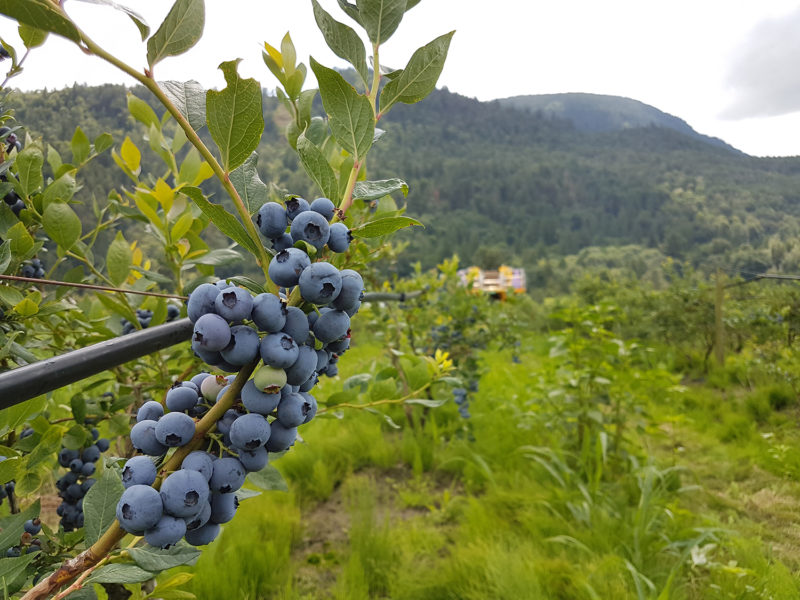BC Blueberry Council estimates point to a 30% reduction in this year’s harvest.
The council collected levies on 185 million pounds of berries last year. This year, it expects to collect levies on just 135 million pounds.
“Crops are estimated to be down approximately 30% due to various factors, including the [late June] heat dome event,” the council told Country Life in BC this week. “However, the official crop count won’t be known until the end of the year or early next year.”
While the majority of BC blueberries were harvested by early August, this summer’s heat waves proved to be an ongoing challenge. The latest heat wave in mid-August challenged growers of late-season varieties, with some considering an accelerated harvest to avoid the worst of the damage.
Close to 100 growers submitted notices of losses related to the summer’s high temperatures, with many also seeing the impacts of blueberry scorch virus. Some growers attributed the greater incidence of the disease to higher temperatures, which may have favoured its spread.
The blueberry council says it’s taking note of how environmental conditions are affecting growers and taking action, advocating for stronger business risk management programs as well as funding research aimed at improving industry resilience.
“As our industry continues to experience climate and weather-related events, the council is seeking ways to support the industry, from prevention to protection,” the council said in a statement.
Among the research initiatives are tarps that protect fruit from heat and breeding initiatives designed to produce locally adapted selections that provide protection against external factors.
Business risk management programs are a high priority for federal, provincial and territorial agriculture ministers, who were supposed to meet last week in Guelph. The meeting was pre-empted by the federal election call, however, and will not take place now until at least late October.


 Dam oversight lacking
Dam oversight lacking